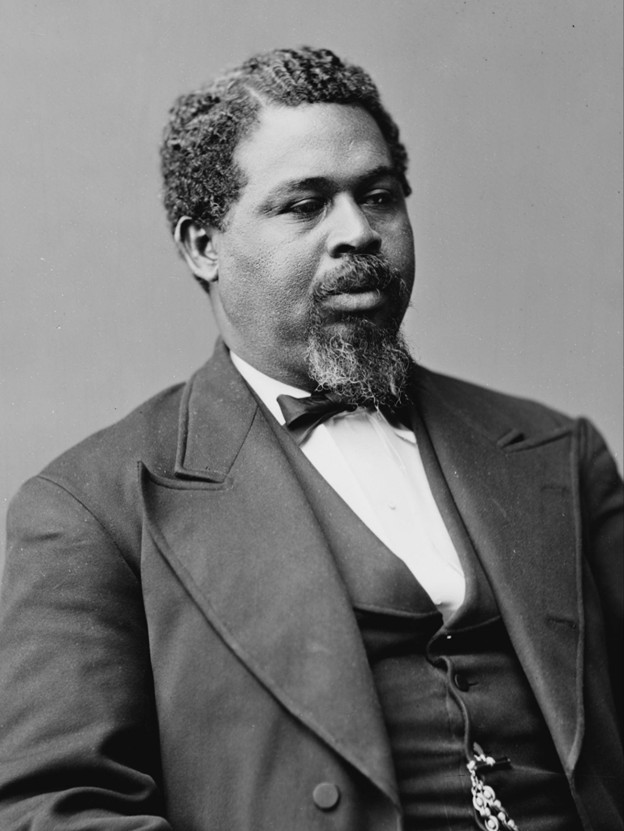
1839 - 1915
Robert Smalls
Civil War Hero and Politician
Robert Smalls (born April 5, 1839, Beaufort, SC – died February 23, 1915, Beaufort) was born into slavery to Lydia Polite, an enslaved house servant—his father is believed to have been Lydia's enslaver, Henry McKee. At age 12, he was hired out to labor in Charleston, working in hotels and on docks, where he learned maritime skills—including piloting vessels. With the outbreak of the Civil War, Smalls was assigned as a wheelman aboard the Confederate transport CSS Planter in Charleston Harbor. On May 13, 1862, seizing a remarkable opportunity, he disguised himself in the captain's uniform, navigated past Confederate batteries using signal codes, and escaped to the Union naval fleet. Onboard were his family and other enslaved crew—plus strategic materials like artillery, ammunition, the captain's signal codes, and harbor mine maps. His escape made national headlines, and he delivered critical intelligence about Confederate defenses. Soon after, Smalls served as a civilian pilot and later captain of the USS Planter, becoming the first African American to command a U.S. naval vessel—he also played a central role in advocating for the enlistment of Black soldiers in the Union Army. After the war, Smalls returned to Beaufort, purchased his former enslaver's home, learned to read and write, and launched businesses, including a store, newspaper, and the Enterprise Railroad. He entered politics, helping draft South Carolina's 1868 constitution and serving in both the state House and Senate before being elected to the U.S. House of Representatives for five terms (1875–1879, 1882–1883, and 1884–1887). He championed public education, civil rights, and government equality for African Americans. His later years saw continuing public service, including a long tenure as collector of customs for Beaufort. He fought voter suppression while battling diabetes. Smalls passed away in 1915 and was laid to rest at Tabernacle Baptist Church. His legacy endures through numerous memorials—schools, monuments, ship names, and a growing recognition as one of America's pivotal Black pioneers.
Key Achievements
- Escaped slavery by commandeering the CSS Planter and delivering it to Union forces
- Became the first African American to command a U.S. naval vessel
- Served five terms in the U.S. House of Representatives
- Helped draft South Carolina's 1868 constitution